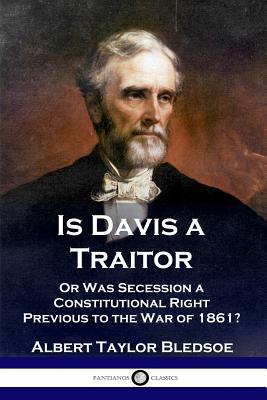
Bledsoe, Albert Taylor
The author poses the question: did Jefferson Davis, the President of the Confederate States of America, commit treason by initiating the secession and thereby igniting the nation on a path to Civil War?
Over the course of a lengthy analysis, Bledsoe justifies the actions of Jefferson Davis as lawful. Considering arguments both for and against Davis as a traitor, we are taken through a series of proposals that quote the U.S. Constitution, Declaration of Independence and Federalist papers. Upon reading and explaining a multitude of passages, the author arrives at the conclusion that states can lawfully leave the Union if they so choose.
Bledsoe goes further in his arguments, saying that the Founding Fathers may have envisaged the prospect for conflict and schism between the north and south. The notion that the Constitution is a 'northern' document inclined to favor the north and undermine the south, even as the south grew in population, is floated.
A notable defender of the southern states, Albert Taylor Bledsoe strongly supported slavery and would defend it as a necessary institution for an orderly society. After the South lost the Civil War, Bledsoe continued to espouse his ideas in a periodical known as the Southern Review, which would gain some popularity among those still supportive of the Confederate cause.







